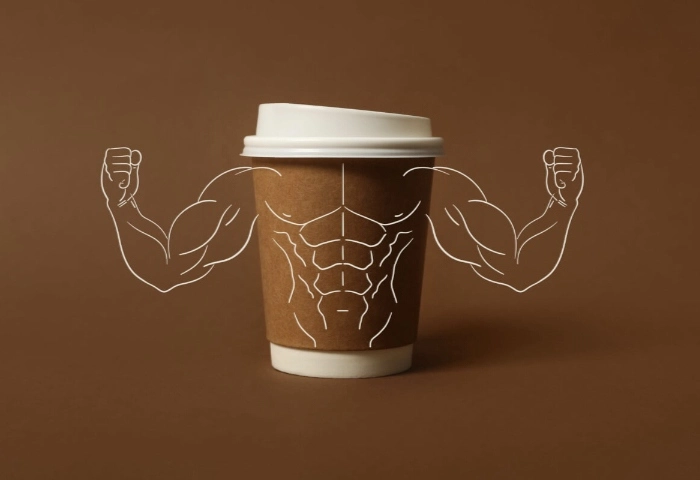Espresso is often seen as the strongest form of coffee, but what does “strong” really mean? Is it about caffeine content, flavor intensity, or something else? This article explores the strength of espresso from multiple angles—caffeine levels, taste, brewing methods, and comparisons with other coffee types.
What Makes Espresso Strong?
When people call espresso “strong,” they usually refer to its concentrated flavor and rich body. Unlike drip coffee, espresso is brewed under high pressure, extracting more oils and solids from the coffee grounds. This creates a thicker, more intense cup.
However, strength can be subjective. Some associate it with bitterness, while others focus on caffeine. To understand espresso’s strength, we need to break it down.
Caffeine Content: Is Espresso the Strongest?
Many assume espresso has the most caffeine, but that’s not always true. A single shot (about 1 oz) contains roughly 63 mg of caffeine. A standard 8 oz cup of drip coffee has around 95 mg—more in total but less concentrated.
Espresso’s caffeine feels stronger because it’s consumed quickly, leading to a rapid spike. Drip coffee’s caffeine is absorbed more slowly. If you drink a double espresso (2 oz), you get about 125 mg of caffeine, similar to a cup of drip coffee but in a much smaller volume.
Flavor Intensity: Bold & Concentrated
Espresso’s flavor is undeniably strong. The high-pressure extraction pulls out more soluble compounds, resulting in a complex, robust taste. You’ll notice:
Rich Crema: The golden foam on top holds aromatic oils, enhancing the boldness.
Full Body: Espresso feels thicker and heavier on the tongue compared to other brews.
Balanced Bitterness: When made correctly, espresso has a pleasant bitterness, not harsh or burnt.
Light or dark roast also plays a role. Dark roasts taste bolder but may have slightly less caffeine than light roasts due to longer roasting.
Brewing Method: Pressure Equals Strength
Espresso machines use 9-10 bars of pressure to force hot water through finely-ground coffee. This method extracts flavors quickly (in 25-30 seconds) and efficiently.
Key factors affecting strength:
Grind Size: Finer grinds increase extraction, making the espresso stronger.
Dose: More coffee grounds mean a more concentrated shot.
Brew Time: Under-extraction tastes weak; over-extraction turns bitter.
A well-pulled shot balances these elements for optimal strength.
Comparing Espresso to Other Coffee Types
Espresso vs. Drip Coffee
Concentration: Espresso is thicker and more potent per ounce.
Caffeine: Ounce for ounce, espresso has more, but a full cup of drip coffee usually contains more total caffeine.
Flavor: Espresso offers a deeper, more layered taste.
Espresso vs. French Press
Body: Both are full-bodied, but French press lacks the intensity of espresso.
Caffeine: French press coffee has more caffeine per serving due to longer steep time.
Espresso vs. Cold Brew
Strength: Cold brew is smoother but can have higher caffeine if concentrated.
Acidity: Espresso is brighter; cold brew is mellow.
How to Adjust Espresso Strength
Want a stronger or milder shot? Try these adjustments:
Increase Dose: Use more coffee for a bolder flavor.
Adjust Grind: Finer grinds slow extraction, increasing strength.
Change Roast: Darker roasts taste stronger but may have less caffeine.
Common Myths About Espresso Strength
Myth 1: Espresso Has the Most Caffeine
As discussed, total caffeine depends on serving size. A full cup of drip coffee usually has more.
Myth 2: Dark Roast Espresso is Stronger
Dark roasts taste bolder but often have slightly less caffeine than light roasts.
Myth 3: A Bitter Espresso is Stronger
Bitterness can mean over-extraction, not necessarily strength. A well-made espresso is strong but balanced.
Health Effects of Strong Espresso
Since espresso is concentrated, its effects can be more immediate:
Energy Boost: The quick caffeine hit increases alertness.
Digestion: Some find espresso aids digestion due to its acidity.
Heart Rate: High caffeine intake may raise heart rate in sensitive individuals.
Moderation is key—most experts recommend no more than 400 mg of caffeine daily (about 6 shots).
Conclusion
Espresso is strong in flavor and caffeine concentration, but not always in total caffeine content. Its intensity comes from the brewing process, which extracts deep, rich flavors quickly. Compared to other coffee types, espresso offers a unique balance of boldness and complexity.
Whether you prefer a single shot or a milk-based drink, understanding espresso’s strength helps you appreciate it even more. Adjust your brew method, experiment with roasts, and enjoy the power of espresso in every sip.
Related topics:
What to Add to Espresso Martini?
How Much Caffeine is in a Shot of Espresso?
Why Does My Espresso Taste Sour?


